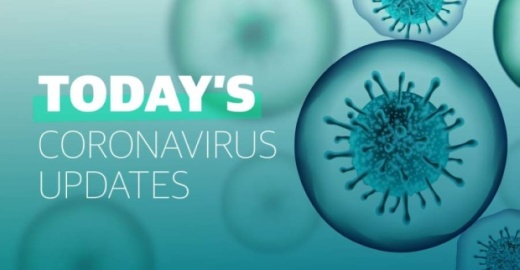According to a June 8 press release from the office of Gov. Greg Abbott, the mission is part of TDEM's partnership with the Texas Military Department, the Texas Emergency Medical Task Force and the Texas Department of State Health Services.
TDEM is reportedly working with local leaders to identify sites for and establish walk-up and drive-thru testing sites, especially in urban areas where large protests have been taking place.
"As the State of Texas continues to mitigate the spread of COVID-19, we are committed to ensuring every Texan has access to COVID-19 testing no matter where they live," Abbott said in the press release. "We must address the disproportionate impact of COVID-19 on underserved and minority communities and ensure that anyone who needs a test can have one. As many Texans continue to gather for protests, the state is also taking steps to address potential surges in COVID-19 cases. We are ensuring that Texans can continue to safely exercise their First Amendment rights while putting protocols in place to identify and mitigate any spread of COVID-19."
Dr. David Lakey, a member of the Texas Medical Association's coronavirus task force and the chief medical officer at The University of Texas System, said that all things considered, case numbers remain a low percentage of the state's total population, but numbers will continue to increase. The challenge, he said, is managing it.
"There is a lot of capacity in the Texas hospital system." Lakey said. "The rates can go up, but the hospitals will be able to manage."
The Texas Department of Health and Human Services indicates as of June 8, across the state, there were 15,402 hospital beds available, 1,723 intensive care unit beds available and 5,911 ventilators available.
Lakey said he is expecting coronavirus rates to continue to increase in the coming weeks between people going out for events, such as Memorial Day, and the ongoing protests in a variety of cities.
Lakey noted the announcement from Abbott is important, as minority populations are being disproportionately impacted by coronavirus.
"The matching of where the testing is occurring versus where the disease is isn't where it needs to be yet," Lakey said. "Having that special effort to make sure that people who need to be tested in minority communities is really important. There are a disproportionate number of people that are minorities that are on the front line, whether [they are] doing home care or are in the hospitals or in the grocery stores."
Chris Van Deusen, director of media relations for DSHS, said any large gathering of people can lead to an increased spread of coronavirus when precautions are not observed.
"There’s not a way to reliably predict whether or how much a particular event will increase the number of cases," Van Deusen said. "We continue to encourage people to practice safe social distancing and wear a face covering when in public, especially if they can’t stay six feet away from other people."
Van Deusen added people should monitor their health for potential coronavirus symptoms, particularly fever, coughing and shortness of breath.
"If symptoms occur, they should get tested and stay away from other people as much as possible," he said.
Coronavirus case counts have continued to rise across the state. Data from the Texas Department of Health and Human Services indicates cumulative confirmed cases since the beginning of June have increased from 64,880 to 75,616 across the state. Cumulative fatalities since the beginning of the month have increased from 1,678 on June 1 to 1,836 on June 8.
Those wishing to find a testing site near them can visit this website for more information.





